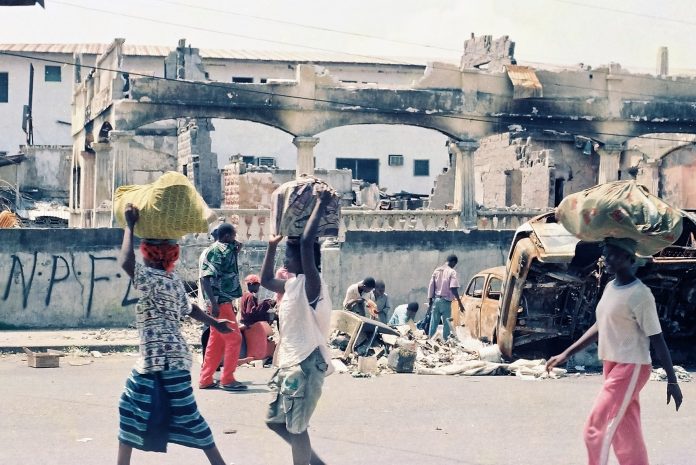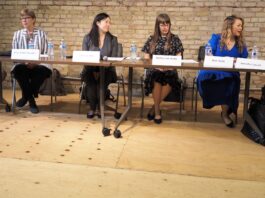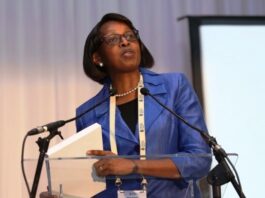By Carmen Russell & James Fasuekoi | The AfricaPaper
Philadelphia, PA – Former United States ambassadors to Liberia, William Twaddell and James K. Bishop, are among scores of US officials expected to take the stand in the highly anticipated trial of Jucontee Thomas “Smith” Woewiyu. They will be joining victims, at least five journalists, and other eyewitnesses to the atrocities committed over the span of Liberia’s decade of civil war.
The United States Department of Justice has charged Woewiyu, a Liberian and alleged warlord, of immigration fraud, perjury and war crimes committed in a foreign land. The starts today at the US Eastern District Court in Philadelphia, Penn.
Trial
Thomas Woewiyu is former spokesperson and defense minister for the defunct National Patriotic Front of Liberia (NPFL). The NPFL was a guerrilla group that launched a brutal war on Dec. 24, 1989 in an attempt to unseat Samuel Doe’s government. In the chaos that ensued, an estimated 300,000 people perished, in addition to a conservatively estimated 700,000 who were forced to flee the country at the peak of the war due to brutality and starvation.
Woewiyu has been charged with seven counts of perjury, two counts of trying to fraudulently obtain US citizenship and several counts of fraud and making false statements. He faces a maximum sentence of over a century behind bars. The trial comes less than a year when a jury found another Liberian man guilty of similar crimes he and his rebel troops committed in Liberia during the war.
Connections
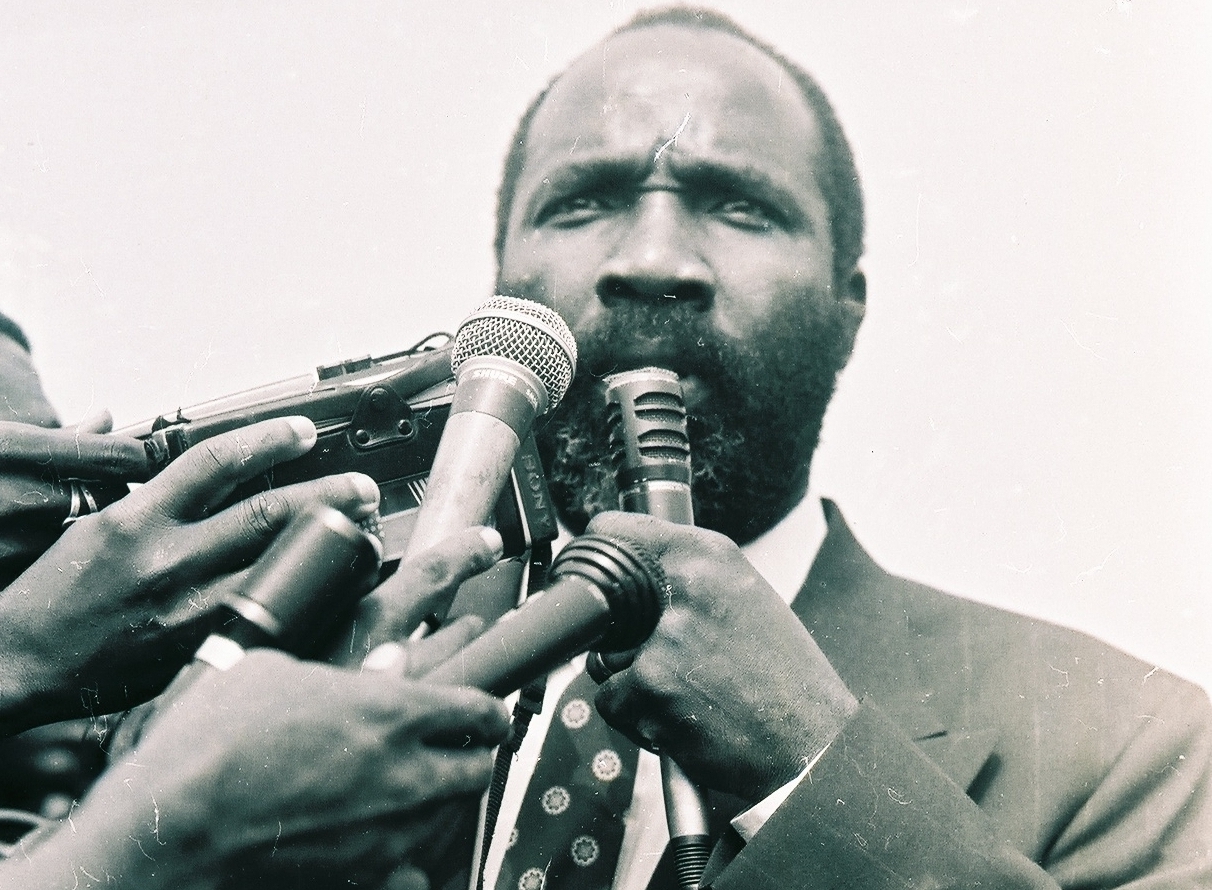
Woewiyu isn’t standing trial for his alleged gross human rights abuses carried out by his NPFL rebel forces. Nevertheless, the government prosecution team is keen on using his apparent connections to and activities with the rebel NPFL during the war period in order to prove that he lied under oath which is a violation of US immigration law.
In pursuit of that strategy, the two former US envoys to Liberia, Twaddell and, Bishop would step forward to demonstrate how each individually encountered this former and influential rebel leader during their respective ternues as diplomat in the West African country.
Both Bishop and Twaddell served as US ambassadors to Liberia at separate periods prior to and during the first civil war. Bishop was ambassador when the war broke out Dec. 24, 1989 and was succeeded by Twaddell. Testimony from both men are intended primarily to establish a factual link between the accused and the rebel NPFL.
A 70-page “Amended Trial Memorandum” entered into evidence in United States v. Jucontee Thomas Woewiyu details the interactions each had with Woewiyu who then served as NPFL defense minister and spokesperson.
Detained
The document states that Twaddell “was detained for three to four hours once at an NPFL checkpoint, and was freed only after ECOMOG command contacted the NPFL checkpoint,” an experience he’s expected to share while on the stand.
The former US envoy who made occasional visits to Taylor’s “Greater Liberia” – described by many as “Taylor Land” – would also testify to “the NPFL’s use of child soldiers, known as the SBU or Small Boys Unit, in [carrying out] extrajudicial killings, and how many child soldiers had AK-47s and were high on drugs.”
Twaddell was then serving as US Ambassador at the time five American Catholic nuns were killed near their Gardnersville Covenant when Taylor launched “Operation Octopus,” his front’s second major military offensive to seize the capital which would not be his last. After the death of the sisters, Amb. Twaddell contacted the NPFL/NPRAG hairachery, states the document, and requested the remains of the nuns for repatriation to the US, something he may also testify to.
There were two phrases of the war in Liberia — the first running between 1989 and 1997 and the second between 1999 and 2003. Both, according to the country’s Truth and Reconciliation Commission, were characterized by extensive gross human rights violation by all sides leading to the deaths of an estimated 300,000 people.
Meeting
For his part, Amb. Bishop is expected to testify how, in early 1990, he and other officials of the State Department met in Washington D.C. with Woewiyu, who the memo observed, “was representing the NPFL as Minister of Defense.”
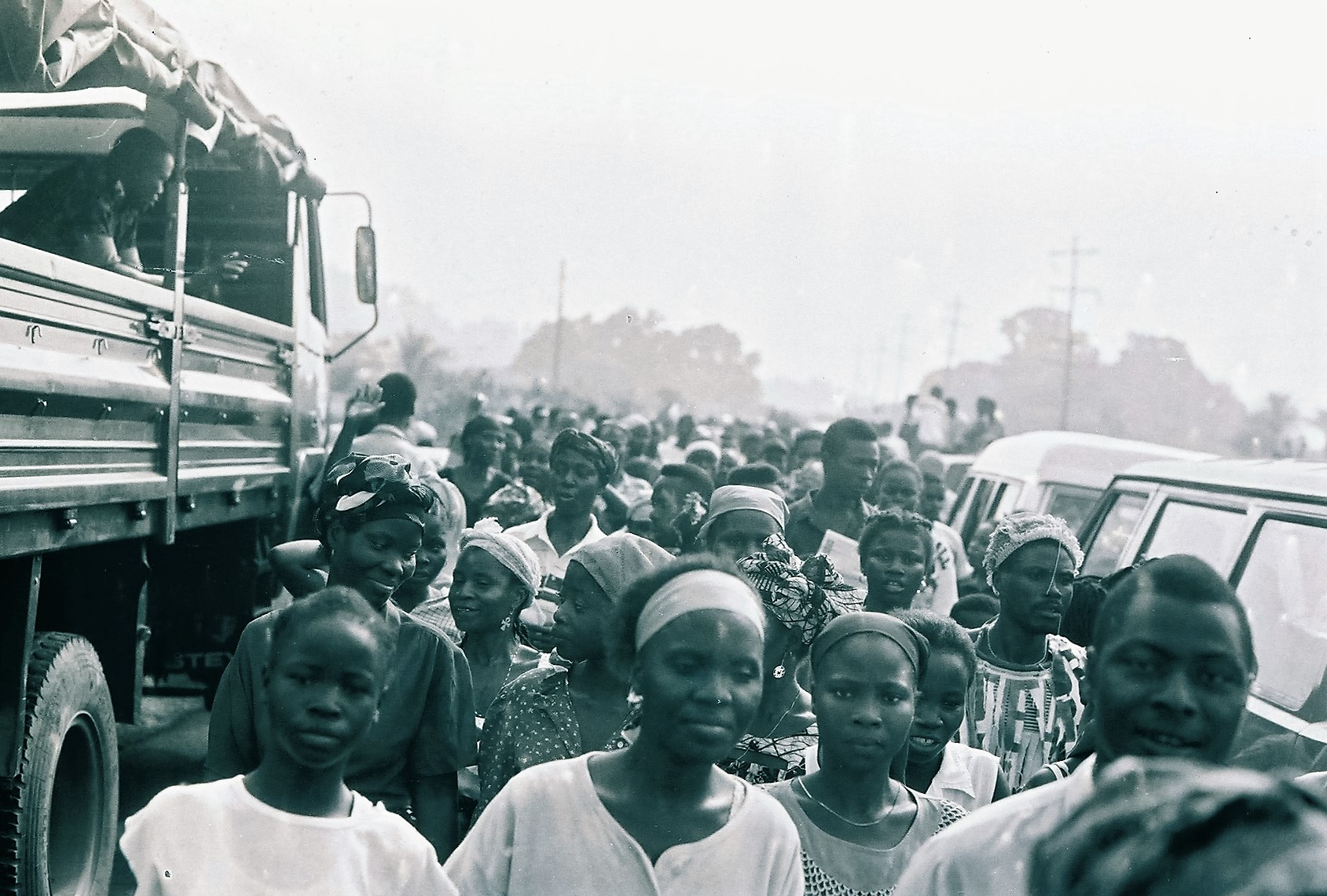
He may also elaborate on a cable Bishop had wired to former Assistant Secretary of State for African Affairs Herman Cohen on June 29, 1990, in which he’s quoted as saying “Taylor’s spokesperson Tom Woewiyu claimed today that they are within the [Monrovia] city limits. Woewiyu said Taylor will leave the Sierra Leone road open so Doe’s loyalists could escape.”
Other US State Department employees listed to give testimony are: Gerald S. Rose, former Deputy Chief of Mission; Thomas J. White, former Economic Officer; John R. Savage, former Economic and Consular Officer and Patrick Hatchett, a representative of the US State Department’s Office of Authentication.
Ambushed
Journalists expected to testify at Woewiyu trial include BBC’s Elizabeth Blunt who watched the INPFL-AFL gunbattle at the country’s largest seaport in the capital in which President Doe was capture September 09, 1990 and tortured to death. Renowned British freelance reporter for The Guardian, Mark Huband is also to testify.
Traveling to Liberia’s iron ore region, Yekepa, on a freight train from the coastal city Buchanan, Huband was captured along with a staff member of the LAMCO mining company, Alexander Kulu, when their train ran into an NPFL ambush. Huband was taken to a rebel military camp near the Ivorian border where he met guerrilla leader Charles Taylor while Kulu, a Krahn from slain President Doe’s tribe, was taken away.
Huband was released by Taylor into the hands of Ivorian authorities following diplomatic intervention by the British Government.
Persecution
Mark Stucke is an independent journalist and, like French photojournalist Patrick Robert, he documented human rights abuses by the front while embedded with the NPFL. Stucke traveled through dozens of checkpoints some “decorated with [human] skulls on sticks and manned by child soldiers, some with AK-47s.”
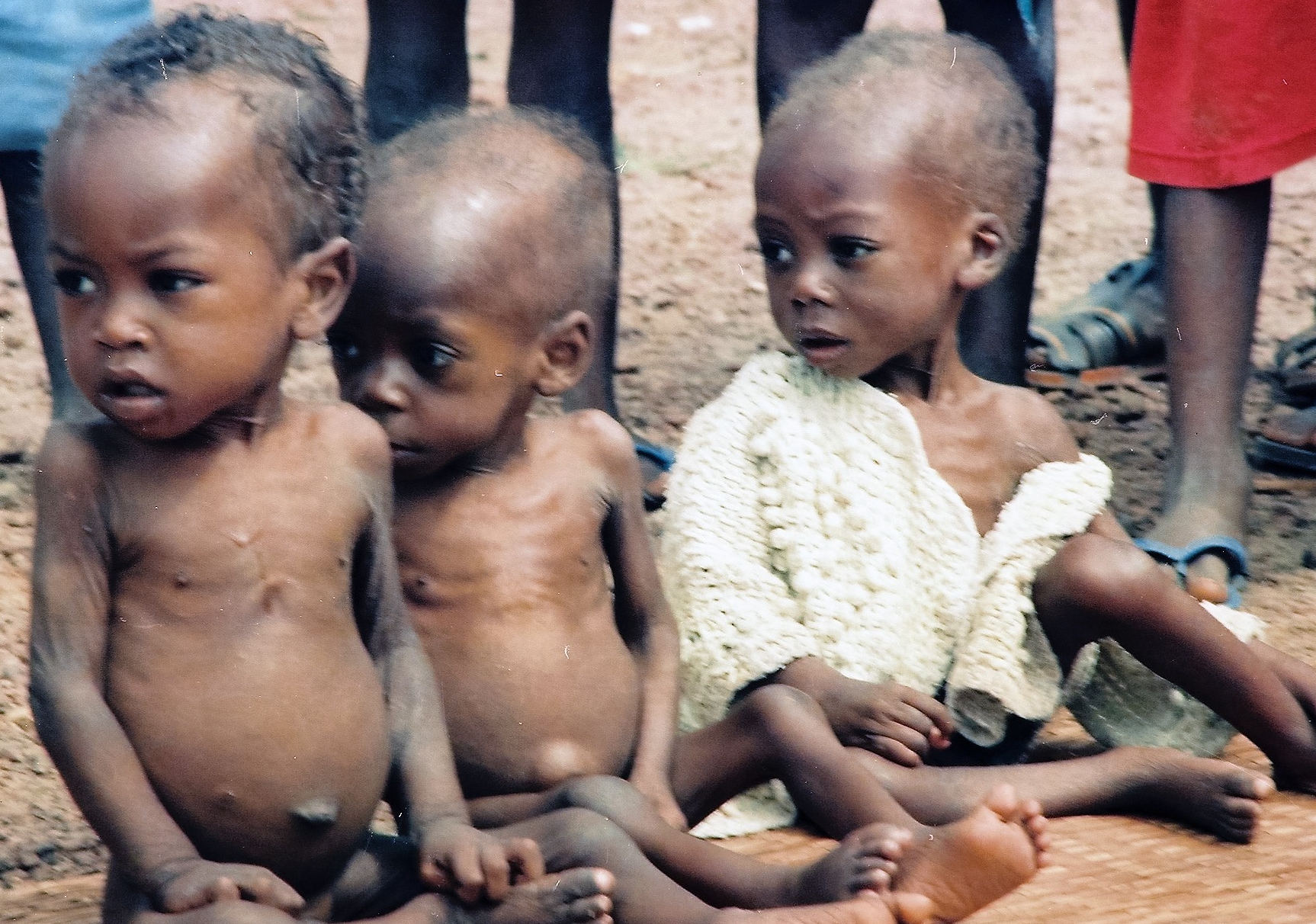
Robert, on the other hand “observed persecutions carried out by them [NPFL] and photographed some of the same,” records the document. They will speak about their experiences traveling with NPFL rebels and perhaps, widespread human rights abuses they observed.
The prosecution intends to also bring in several prominent Liberian journalists who covered the brutal wars especially from 1989 to 1997, to provide testimony. However, it has made it clear via a footnote “The government may seek leave, under the appropriate circumstances, to add witnesses in the future.”
[Editor’s Note: The lead author of this piece is one of the Liberian journalists expected to testify in the case against Woewiyu. James Kokulo Fasuekoi was serving as a photojournalist for a number of major outlets including the AP during the civil strife in Liberia. As a result, the prosecution has called on him to verify his reporting, particularly photos from that time that have been entered into evidence.]
World Copyright
The AfricaPaper, USA, 2018. All rights reserved. Photos and text may not be published, broadcast, rewritten, redistributed or used in any form without the written permission of The AfricaPaper, and AIIR. We take legal action for any copyright infringement.
|TAP| Africa’s Newspaper of Record

